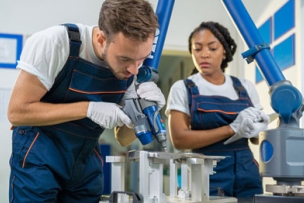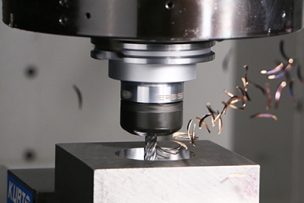Struggling to replace the mindset of “That’s the way we’ve always done it” at your machine shop with “How can we do it better?” A growing number of your rivals and peers are too, contending with insufficient staff and know-how to update manufacturing technology as well as a lack of money to cover training and new equipment.
The National Institute of Standards and Technology (NIST) can help with the first challenge through its Manufacturing Extension Partnership (MEP) program, a national network of industry experts who support small and medium-sized manufacturers.
Your state’s MEP Center can put you in touch with any number of regional offices able to provide technical expertise, training recommendations, lean manufacturing consulting services, and other resources. Once companies begin using such services to update their manufacturing tech and practices, the accompanying revenue growth often begins easing the cash dilemma.
“Breaking the status quo is hard work, and it’s not going to happen overnight, but you’ll eventually get there with the right team,” say senior project manager Sue Via and growth and innovation coach Steve Bebko of TechSolve Inc., an MEP partner in the Cincinnati area. “Most shops do need outside expertise to help them with these types of improvement projects. With the current labor shortages and supply chain issues, manufacturers only have so many internal resources available.”
The two describe their role as pushing manufacturing and machine shop clients “out of their comfort zone, but not so far that everyone begins to panic.”
Better MRO: What are some of the reasons that machine shops take a “that’s the way we’ve always done it” attitude when presented with new manufacturing technology that would be an upgrade from their current systems?
TechSolve: That attitude is still out there, but it’s changing. Management today seems more technologically enlightened, if you will, than they once were. The problem is that many manufacturers don’t know what to do––they only know that their current practices are not working and that they need to identify solutions. Some manufacturers looking at new technology need a guide to walk them through the process of assessing return on investment so that they choose the right options for their business. Others simply need a push in the right direction.
Too Busy for New Tech
Better MRO: No doubt some of them believe that the legacy processes are what made their company successful. Also, change is difficult, often expensive, and many shops say they are too busy to look at new technology. Thoughts?
TechSolve: First off, change doesn’t have to be difficult. It should be gradual but consistent. It's crucial to realize that you are in a race against your competition, whether it’s the shop down the street or those across the ocean. Those manufacturers who take the time to improve their operations or spend the money needed to create a stronger competitive advantage are the most successful. As for legacy processes, are you really doing exactly what you did 10 or 20 years ago? Perhaps you are, but the world is moving on, and if you don’t embrace new technology, you'll eventually get left behind. Also, have you asked your customers what they think? Are they looking for better lead times? Is your pricing competitive? Are they delighted with your shop’s quality levels? You must ask these questions, even if you don’t like the answers. Otherwise, you’re leaving the door open for competition.




Talk to Us!
Leave a reply
Your email address will not be published. Required fields are marked *